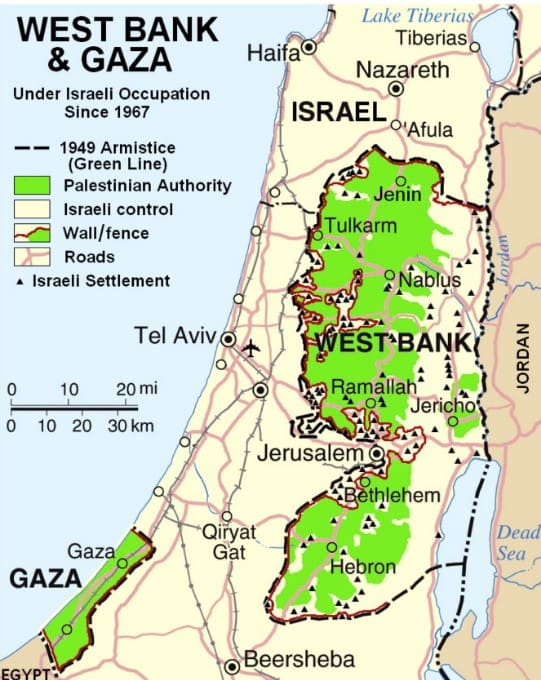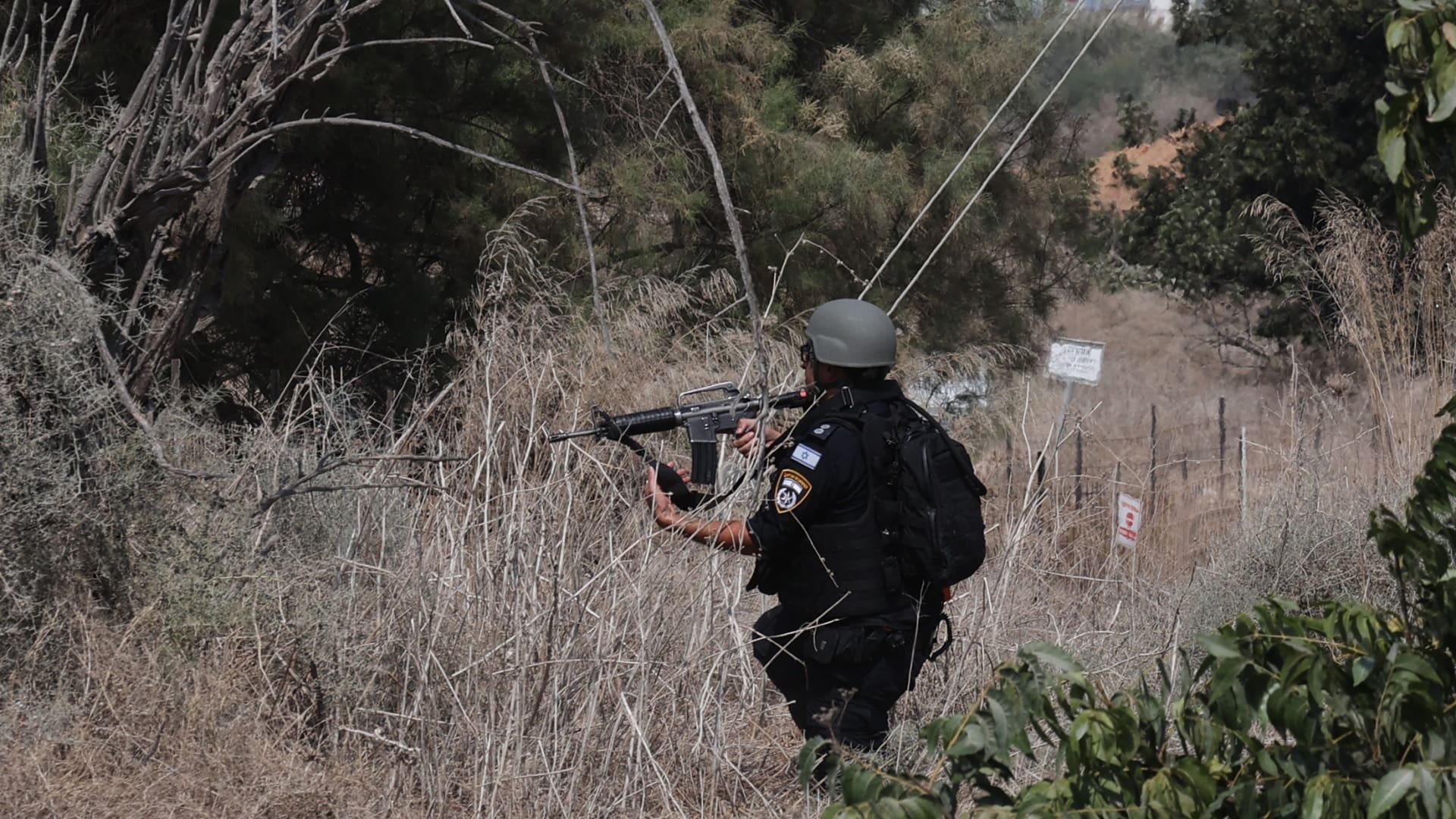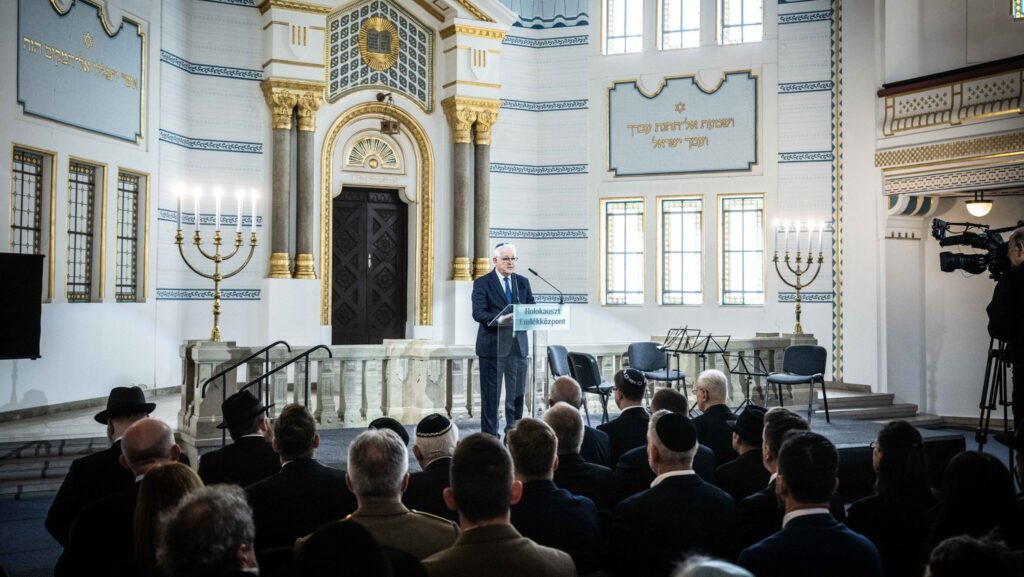The attack on Israel by Hamas (Islamic Resistance Movement), which it calls Operation Al-Aqsa Flood, on the 50th anniversary of the Yom Kippur War, seems to have caught the Israelis off-guard, which is almost inexplicable being that the Mossad is perhaps the best secret service in the entire world. Just like the Egyptians surprised the Israelis when they launched their surprise attack in 1973, it seems as if the latter was, once more, caught sleeping. Others within the Israeli political body say just the opposite.
Ofer Cassif, a member of the Knesset for the leftist Hadash Party (The Democratic Front for Peace and Equality), which has four seats in the Israeli Parliament, said he warned the situation would ‘erupt’ if the Israeli government of Prime Minister Benjamin Netanyahu did not change its policies towards Palestinians:
‘We have been warning time and time again… everything is going to erupt and everybody is going to pay a price—mainly innocent civilians on both sides….The Israeli government, which is a fascist government, supports, encourages, and leads pogroms against the Palestinians. There is an ethnic cleansing going on. It was obvious the writing was on the wall, written in the blood of the Palestinians—and unfortunately now Israelis as well.’
Cassif, like others, refers to the establishment of Israeli settlements in the Israeli-occupied territories considered illegal by the international community according to Article 49 of the Fourth Geneva Convention. Indeed, the militants cite United Nations General Assembly Resolution 37/43, which prohibits states from ‘any military occupation, however temporary’, and also reaffirms that people struggling for independence and liberation from colonial rule have the right to do so using ‘all available means, including armed struggle’.
Yet Saturday’s invasion did not occur at the spur of the moment. It is, rather, rooted in decades of geo-political (and religious) upheaval on disputed lands.
Disputed Territories
The disputed lands have been the scene for tensions and violence between Arabs and Israelis since the time of the British Mandate, which was declared in 1917, ending 400 years of Ottoman rule in the region. With the Balfour Declaration of the British occupier,
there was a real prospect of creating a ‘national homeland’ for Jews in Palestine, following the appeal of the Hungarian-born iconic Zionist leader Theodor Herzl.
In like manner, a home for the Palestinians was also decreed. To accomplish Israeli statehood, in what became known as the War of Independence (or Arab-Israeli War of 1948), nearly 750,000 Palestinians (75 per cent of the Arab population), both Muslims and Christians, fled or were expelled from their homes—Christians make up 20 per cent of the 13 million Palestinians, but 70 per cent presently live outside Palestine and Israel because of Islamic and rightwing Jewish persecution.
Gaza: Also known as the Gaza Strip, which the militant group Hamas controls, is home to approximately two million Palestinians, many of whom were displaced after leaving or being driven from Israel during the War of Independence.
West Bank: It is east of Israel. About three million Palestinians live there, most of them Muslim Arabs; a small percentage are Christians. The West Bank contains a number of Jewish holy sites, which are visited by thousands of pilgrims every year.

East Jerusalem: Jerusalem is contentiously divided. It was separated in two after the 1948 Arab-Israeli War. Israel controlled the western portion; Jordan controlled the east, which the Israelis fully captured during the Six-Day War in 1967. Israeli officials claim it as their undivided capital city. In 2017, the Trump administration moved the United States Embassy in Israel from Tel Aviv to Jerusalem, a formal acknowledgement of Jerusalem as the capital; Hungary announced in March that it too would move its embassy from Tel Aviv to Jerusalem, though still maintains it in the former. Most countries do not recognise Jerusalem as belonging to either Israelis or Palestinians.
As I wrote in a previous article, given the reciprocal animosity between both sides embedded in religion, specifically from the political and religious leaders who in turn indoctrinate their subjects, the chances for peace in the Holy Land are practically impossible. Yet those who defend Israel’s right to exist, aside that they have not publicly acknowledged the persecution of Palestinian Christians, have inadvertently helped Hamas, just as with the Iranian-backed Hezbollah, which has recently fired rockets into the Israeli-occupied Golan Heights—it was part of extreme southwestern Syria until 1967, when it came under Israeli military occupation, then in December 1981, under the control of the Palestinian resistance.
Iran Predicted and Abetted the Hamas Invasion
Just days before the Hamas invasion, the Supreme Leader of the Islamic Republic of Iran Ayatollah Ali Khamenei delivered a speech at the International Islamic Unity Conference, in which he predicted that the ‘usurper Zionist regime’ would soon come to an end. Indeed, Iranian government officials congratulated Hamas on its surprise attack on Israel early Saturday morning, expressing support for ‘anti-Zionist resistance’ across the region:
‘Today, the Palestinian movement is more alive than it has ever been during these 70 or 80 years. The honourable Imam [Khomeini], may God be pleased with him, described, the usurper [Zionist] regime as a cancer. This cancer will definitely be eradicated, God willing, at the hands of the Palestinian people and the resistance forces throughout the region.’
Indeed, according to a report by The Wall Street Journal, officers of Iran’s Islamic Revolutionary Guard Corps had worked with Hamas since August to devise Saturday’s attack. Israel’s ambassador to the United Nations, Gilad Erdan stated on Sunday:
‘We know that there were meetings in Syria and in Lebanon with other leaders of the terror armies that surround Israel so obviously it’s easy to understand that they tried to coordinate. The proxies of Iran in our region, they tried to be coordinated as much as possible with Iran.’
It is no secret that Iran has been furnishing Hamas with weapons and financial support. Yet with all the sanctions on the Iranian regime, where does it keep getting its money to support the Islamic militants?
As published by the Hungarian Conservative, in an article titled Dealing with Iran: Appeasement Is Not the Way, agreements such as the one made last November during the Hungarian-Iranian Joint Economic Committee only help the mullahs’ jihadist cause. When Hungarian Minister of Foreign Affairs and Trade Péter Szijjárt stated ‘we’d like Iran to be able to return as soon as possible to the system of peaceful coexistence within the international community’, it was the same wishful thinking that then-President Barack Hussein Obama had under the Iran nuclear deal, officially the Joint Comprehensive Plan of Action (JCPOA).
Aside from all that, the Iranian Shi’ites are masters of 'taqiyya' (the art of deception or lying) and have led the international community to believe them, to say nothing of their global sponsoring of terrorism. The Islamic theocracy in Tehran also continues to suppress and annihilate pro-democracy activists—a reason why the jailed Iranian activist Narges Mohammadi won the Nobel Peace Prize for fighting women’s oppression in Iran.
US House and Senate Republicans were quick to condemn President Joe Biden for unfreezing $6 billion in Iranian assets months before Hamas launched its deadly and massive attack.
Despite the State Department arguing that not a single cent of the aforementioned sums has gone to Hamas, critics sustain that the funds are fungible and could be diverted elsewhere. The State Department has previously admitted that Iran provides an annual $100 million to Palestinian armed groups, including Hamas and the Islamic Jihad Organisation. Also, it seems as if Iran has duped Israel into an all-offensive retaliation.
Martin Indyk, the Lowy Distinguished Fellow in US-Middle East Diplomacy at the Council on Foreign Relations, said:
'Hamas’s intention is to get Israel to retaliate massively and have the conflict escalate: a West Bank uprising, Hezbollah attacks, a revolt in Jerusalem…The party to watch most closely is Hezbollah…They have 150,000 rockets they can rain down on Israel’s main cities, and that will lead to an all-out war not just in Gaza but in Lebanon too. And everybody would get dragged in that situation.'
Hungarian Prime Minister Viktor Orbàn offered his full support to Israeli Prime Minister Benjamin Netanyahu, who declared that Israel was 'at war' and promised that the attackers would pay 'an unprecedented price'.
Orbán has yet to publicly speak, (at least to my knowledge), with the Palestinian officials—Hungary is one of the various countries in the European Union that recognizes Palestine as a sovereign state; it established formal relations in 1988. All things being equal, the roots to the actual deadly conflict are profound, as already mentioned. Yet it does not help the cause of peace to keep doing business with Iran, just as the United States has done under the Obama administration and is still doing under the present one.
The signs of the Hamas invasion seem to have been obvious in hindsight.
It is time to stop supporting a regime that for 44 years has done nothing but terrorize its own people and the Middle East.
This will not bring peace to the region, but it may be a start. Until then, innocent civilians on both sides will continue to pay the price!
Related articles:








